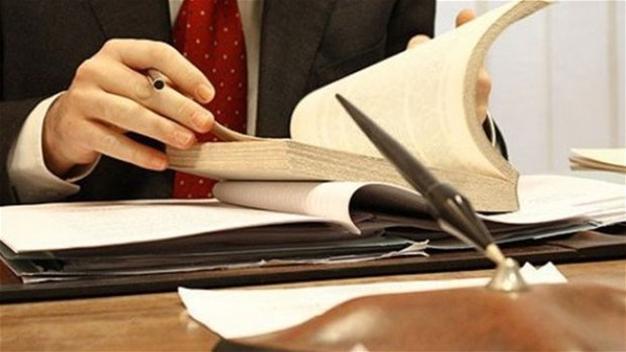Turkish gov’t takes all military appointment rights in sweeping new emergency decree
ANKARA

The government took over all appointment rights in the military with three sweeping new state of emergency decrees issued late on Jan. 6, with the authority for the formation of cadres in the General Staff transferred to Turkey’s Defense Ministry.
The appointment process of the force commanders had previously started with the General Staff’s proposal, but this has changed with the new decrees published in the Official Gazette. The force commander will now be determined with the suggestion of the Defense Ministry, the prime minister’s signature and the president’s approval. Any lengthening of the force commander’s period in office is also to be suggested by the Defense Ministry.
In addition, the general and admiral cadres that were previously determined by the General Staff before being discussed in annual Supreme Military Council (YAŞ) meetings will now be determined by the Defense Ministry.
With the new decrees, the compulsory service period for pilots has also risen from 17 to 20 years.
Moreover, a total of 8,390 civil servants have been dismissed with the new decrees. According to the decrees, 1,699 personnel have been dismissed from the Ministry of Justice, including eight members of the Council of State and one from the Supreme Electoral Council.
A total of 2,687 police officers, including 53 high-ranked commissioners and 919 chief officers, have been removed from the Police Department.
In the Armed Forces, 763 officers were dismissed, thus bringing the total number of people dismissed to 6,517, CNN Türk reported.
The decrees ordered the dismissal of 838 people from the Health Ministry and 135 officials from Turkey’s Religious Affairs Directorate (Diyanet).
Hundreds of other civil servants were also dismissed as part of statutory decrees from various ministries and state institutions, while a total of 786 people were dismissed from universities across the country, including 631 academics and 155 administrative staff.
Meanwhile, 276 people who were formerly dismissed with previous statutory decrees after the July 2016 failed coup attempt have been reinstated to their jobs. In addition, 11 newspapers that had been closed down were given the right to be reopened.
One particularly chilling aspect of the new law is its introduction of a measure potentially revoking the citizenship of individuals abroad who do not respond to judicial summons issued by courts or prosecutors within 90 days.
The decrees also grants police the authority to access the identity information of internet subscribers for the purposes of investigating crimes committed online.
The three decrees published in the Official Gazette also ordered the closure of 83 associations accused of “activities affecting the security of the state.” These include eight sports clubs, mainly from the southeastern provinces of the country.
With the new decrees, the broadcasting will be able to be suspended for a day if a ban on publication is violated. The license of the channel will be cancelled if the same act is repeated three times in the same year.
Turkey declared a state of emergency after the deadly July 2016 coup attempt, widely believed to have been masterminded by the network of U.S.-based Islamic preacher Fethullah Gülen, during which more than 250 people were killed and thousands were wounded.
















